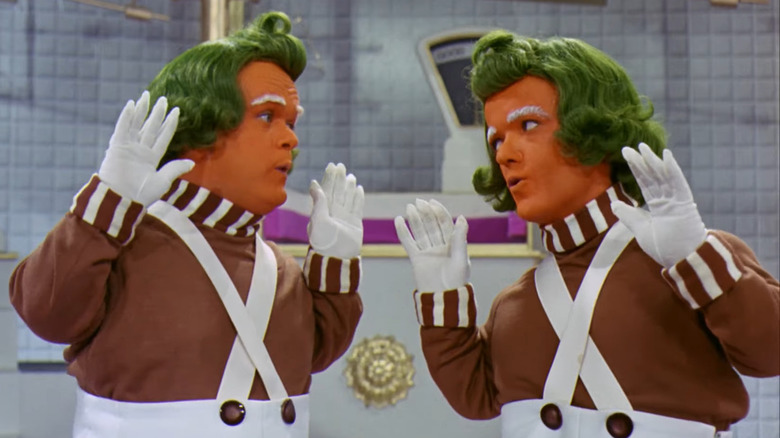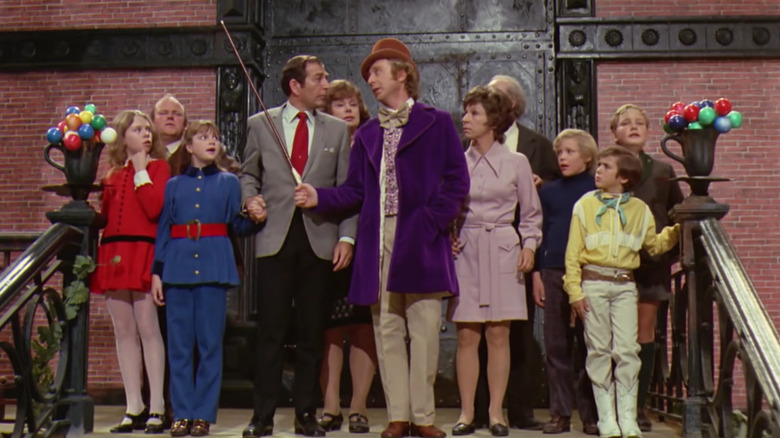Willy Wonka And The Disturbing Past Of The Original Oompa Loompas Explained
The colorful Oompa Loompas from 1971's "Willy Wonka and the Chocolate Factory" are warmly remembered by fans over 50 years later. However, their purpose in the original 1964 Roald Dahl novel "Charlie and the Chocolate Factory" was far more egregious.
In its original publication, the Oompa Loompas were described as a pygmy African tribe that Wonka imported from "the very deepest and darkest part of the African jungle where no white man had been before." The book was accepted at the time, with readers and publishers using the excuse of the story's Victorian-era overtones. It wouldn't take long for audiences to come to their senses. When crafting the 1971 film, the team took special note of groups such as the National Association for the Advancement of Colored People (NAACP), who brought attention to the blatantly problematic depictions, resulting in the orange-skinned, green-haired interpretations we know today from the film.
The following years saw changes to the book as well. Following pushback from authors such as Eleanor Cameron in 1972, the Oompa Loompas were changed to being short hippies in the book's 1973 revised edition. Dahl acknowledged the criticism in a 1988 interview: "It didn't occur to me that my depiction of the Oompa-Loompas was racist, but it did occur to the NAACP and others.... After listening to the criticisms, I found myself sympathizing with them, which is why I revised the book." However, the Oompa Loompas weren't the only touchy subjects the film had to address.
The 1971 classic changed the book's title for political reasons as well
The Oompa Loompas in "Willy Wonka and the Chocolate Factory" may improve the 1964 depictions, but the concept of indigenous people being taken in by "civilization" for working purposes is nevertheless still worthy of debate. Another factor that continues to be debated is why the film's title replaced "Charlie" from the book's title with "Willy Wonka."
Several reasons have circulated for the name alteration. During the time, the name "Charlie" had several heavily political meanings. Black people often used the phrase "Mister Charlie" to refer to arrogant white men or black people who "acted white." The term has been associated with the Civil Rights era of the 1960s, most notably in the title of James Baldwin's 1964 play "Blues for Mister Charlie."
Despite Paramount persisting at the time of the film's release that the title had been changed to highlight the character of Willy Wonka, whom Gene Wilder would only play with one stipulation, director Mel Stuart would later confirm that concerns from African American groups urged the team to make the change. Charlie was also utilized as a slur during the Vietnam War, originating from American soldiers referring to the communist forces of the Viet Cong and North Vietnam as Victor Charlie over time.
It's easy to take these changes in "Willy Wonka and the Chocolate Factory" for granted nowadays. But thankfully, these alterations ensured that the film would appeal to audiences at the time and live on as a beloved classic.

